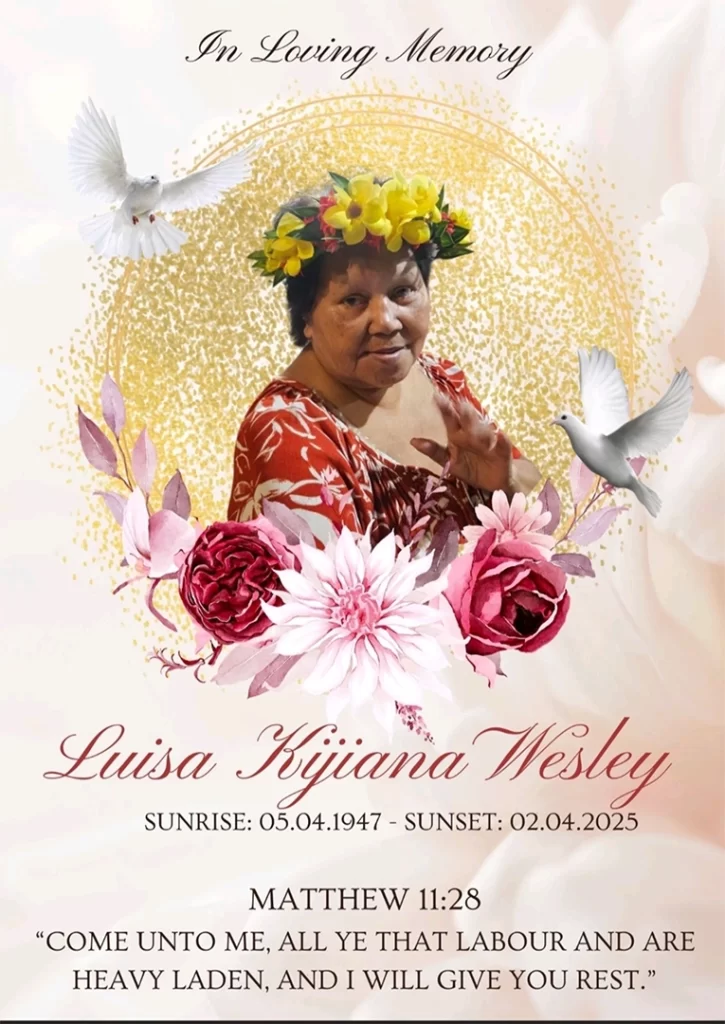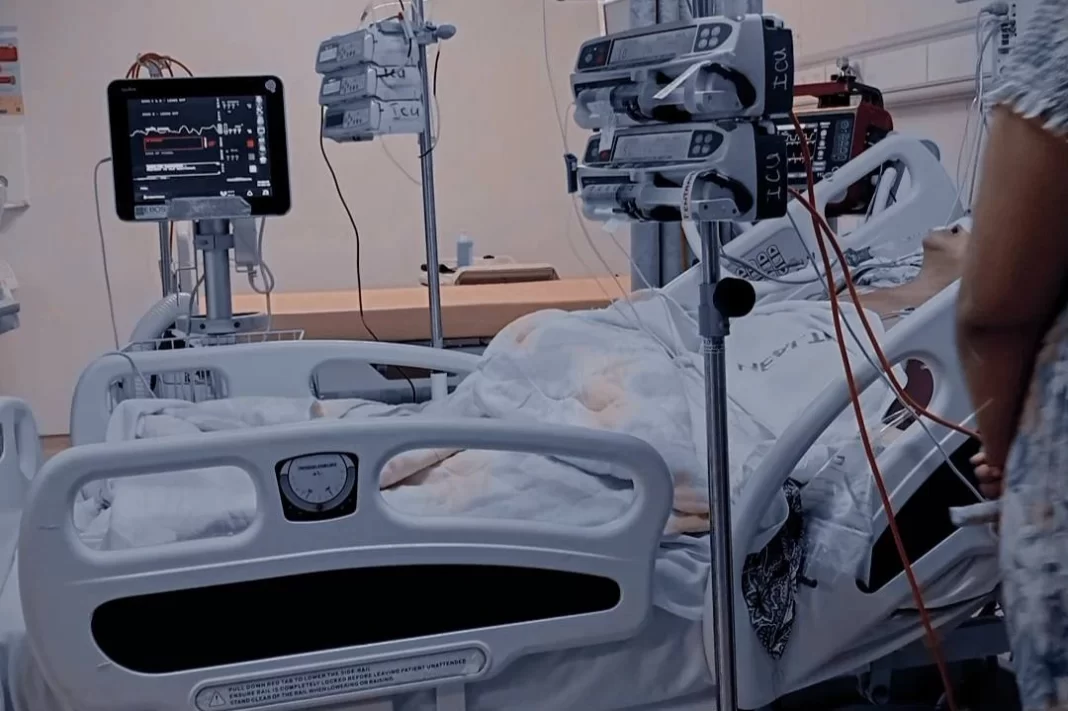Luisa Kijiana Wesley was more than just a victim. She was a beloved member of her community — a librarian, a former church school secretary, a second mother to many, and someone remembered for kindness, softness, and service. On April 2nd, 2025, she was taken from us in the most painful way. In her own home in Lotopa, a place where she should have been safe.
She was found lifeless, and early reports suggest she had been attacked during a home invasion. There is growing concern that whoever did this may have been under the influence. That alone is terrifying, because it speaks to how close danger now lives among us.
A Family Still Seeking Justice
According to a post by her niece, Eliza Togia’i, Luisa had previously been assaulted at home and had identified a suspect after being shown police photos. That case, her family says, did not lead to meaningful follow-up by authorities.
The second assault — the one that ended her life — was brutal. Eliza says her aunty was punched, pushed, and strangled in her own home during broad daylight. Days later, Luisa suffered a stroke linked to the head trauma from the assault. She never recovered.
After Luisa’s passing, the family reached out directly to the Police Commissioner for answers. That seemed to finally stir movement. Officers from the Faleata station then showed up — not to give updates, but to confront the family for going over their heads. It was as if they’d just been chewed out by the Commissioner and were now taking it out on the very people seeking justice. Instead of recognising their own inaction, they made the family feel like the problem. If anything, it shows the Commissioner was doing his job… it’s the local response that fell flat.
If these claims are accurate, this was not just a failure of security. It was a failure of response. A 77-year-old woman was violently attacked in her own home. And the system charged with protecting her failed her.
Samoa is Changing Too Fast — and Not for the Better
This wasn’t just a burglary. It was a symptom. Samoa is being swept by rapid changes — in technology, in lifestyle, in social values. Life is speeding up. And in the rush, the most vulnerable — our elderly, our children — are being left behind.
What used to be a society grounded in fa‘aaloalo, village cohesion, and strong familial networks is now fraying. Families are pulled apart. Parents are overseas. Kids are growing up on TikTok. Neighbours don’t know each other. The system of fa’amatai barely exists in urban Samoa. And churches — though everywhere — are often focused on their own projects, while the streets they overlook grow darker.
The Drug Plague We Pretend Isn’t There
Meth is not new. What’s new is how normal it’s becoming. It’s traded openly. Found in schools. Used by teenagers. Vaimauga College recently confirmed students using and distributing drugs — in uniform.
We are now living with addicts who no longer fear consequences, and communities who no longer react in shock. And that’s when we should be most alarmed — when horror becomes normal.
The Real Cost of Silence
Facebook tributes and outcries paint the real picture: a woman remembered with love and respect by generations. A librarian at CCWS. A church school secretary. A warm-hearted aunty who gave kids snacks while they waited for their parents.
And now, a victim. A name added to a growing list of elderly people suffering alone, behind closed doors, in a society that claims to value them.
Some are calling for laws that protect senior citizens. Others are demanding accountability. And many are expressing disbelief that something like this could happen in Samoa — and that so little seems to have been done to stop it.
Where Are the Churches? Where Are the Chiefs?
We cannot keep pretending this is someone else’s issue. The church system has reach, money, and people — but has been far too quiet on this national emergency. If the drug epidemic isn’t being named from the pulpit, what is? If lives like Luisa’s are not worth standing up for in church, what is?
The matai system was designed to protect the people, maintain order, and act swiftly. But in Apia and most urban nu‘u, that structure is now thin or ceremonial. And so when crime comes to the front door, there’s no one left to guard it.
A Time for Accountability and Action

There is no restoration for Luisa’s family — only grief. But there can still be justice. And more than that, there can be change.
We need serious follow-up by authorities. We need public pressure for transparency. We need laws to protect the vulnerable. And we need churches, schools, and families to step back into their roles as the defenders of society, not just spectators of its decline.
Luisa’s life mattered. She was not a statistic. She was not “collateral damage.” She was a mother figure, a faithful worker, a woman of peace.
We can either mourn her — or honour her.
Honour means refusing to stay silent. It means reclaiming the values that once made us strong. It means not allowing this to become normal.
Rest in love, Luisa Kijiana Wesley.
You should have been protected. And now we must protect others, in your name.





